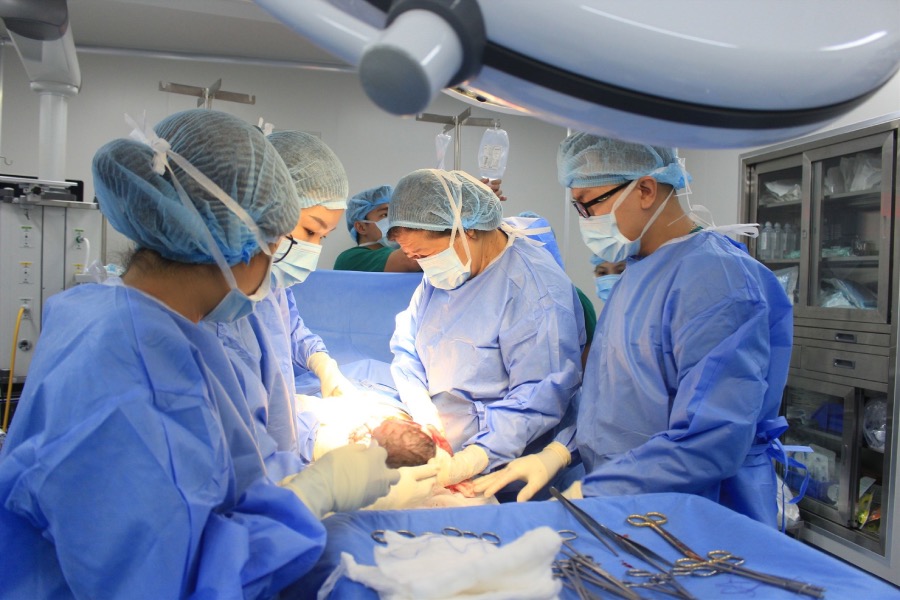Determined to "stay home" due to abstaining from giving birth on the first day of the month
A 34-year-old woman (Hanoi) was pregnant for the second time. At the 40th week of pregnancy, she did not go to the doctor on time. The reason was that the family did not want to give birth on the first day of the month, fearing that it would be difficult to raise, so they waited until the next day. She said that the first child was also born on the same day and time, and that the cesarean section at the 41st week had no problems, so she was reassured.
When coming for examination, Dr. Nguyen Trung Dao - Department of Obstetrics and Gynecology, Hanoi Obstetrics and Gynecology Hospital - discovered green amniotic fluid, low baby head and ordered immediate hospitalization. If prolonged, the risk increases 10 times. Fortunately, the mother went into labor safely, the health of mother and fetus was stable. The baby boy was born weighing 3.8kg, crying loudly, and had a rosy complexion.
Previously, Hanoi Obstetrics Hospital also received a 39-year-old pregnant woman who almost died due to severe preeclampsia at 37 weeks of pregnancy but decided not to have surgery because of the taboo on the first day of the lunar month. The emergency doctor spent a lot of time convincing her. Fortunately, the baby girl was born safely, and the mother's health was stable.
Caesarean section rate in Vietnam increased to 37%
Associate Professor, Dr. Vu Van Du - Deputy Director of the Central Maternity Hospital - said: "In Vietnam, the rate of cesarean section has increased continuously over the past 15 years, from 12% in 2005 to 37% in 2022. In addition to the instructions from doctors, many pregnant women and their families request to have a proactive cesarean section.
High caesarean section rates have become a pressing issue, raising concerns about their impact on maternal health and long-term consequences.

According to the World Health Organization (WHO), the rate of cesarean section should be only 10-15%. In medicine, exceeding 15% is considered unnecessary. However, in recent decades, the rate of cesarean section has increased worldwide. It is predicted that by 2030, the global cesarean section rate will be 29%.
Associate Professor Tran Danh Cuong - obstetrician and gynecologist - said that mothers who give birth naturally do not experience complications of cesarean section such as epidural anesthesia, anesthesia, and bleeding after giving birth.
After normal birth, the mother will have more milk because the endocrine system is activated during labor. On the other hand, the recovery time of the mother who gives birth naturally will be faster. Babies born naturally have to go through a long time during labor, so their lungs function well and their respiratory system is better than babies born by cesarean section.
Doctors recommend that when there is no indication for a cesarean section, the mother should choose a normal birth. The doctor will consider the benefits between a normal birth and an active cesarean section in the most reasonable way. Because when the rate of repeated cesarean sections is high, the mother often has an increased risk of placenta previa, placenta accreta, and hysterectomy after each cesarean section.
Pregnant mothers and their families should not be too superstitious, choosing a good day and time to proactively have a cesarean section. A premature birth can cause the baby to be premature, have an incomplete respiratory system, pneumonia, and affect future development. Not to mention, cesarean section leaves many complications for the mother, such as infection, scarring, unhealed incisions, itching, and the risk of uterine rupture when having a previous cesarean scar twice is twice as high as a previous cesarean scar once.










